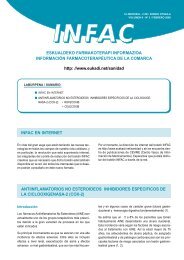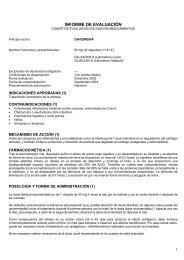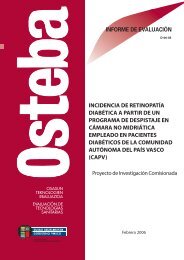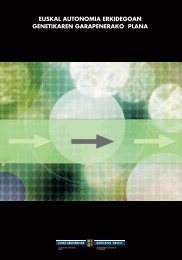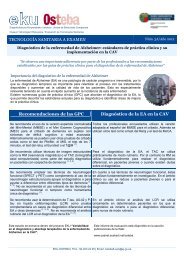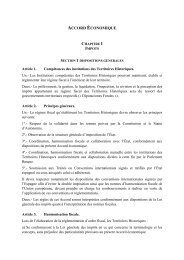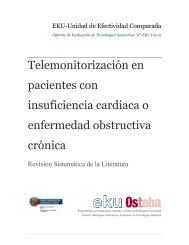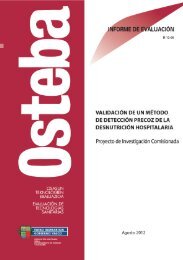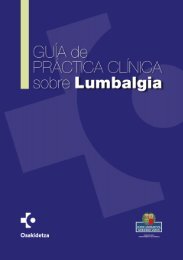2. No hay evidencias que apoyen o refuten la tesis de que la psicoeducación aumente el conocimientoteórico de los pacientes sobre su enfermedad.3. Las evidencias de que la psicoeducación pudiera beneficiar el estado mental o la adherencia al tratamientoen medio plazo (doce meses) son limitadas y, en cualquier caso, su efecto reducido.4. No hay evidencia alguna de la eficacia o falta de la misma de la psicoeducación en la esquizofrenia refractariaa tratamiento.5.5.5. Recomendaciones1. No se puede recomendar la psicoeducación como técnica para mejorar el estado mental, el insight ola tasa de recaídas en la esquizofrenia refractaria.2. La psicoeducación en sus distintos formatos (individual/grupal; paciente/familia) no difiere conceptualni técnicamente de la información proporcionada al paciente o su familia cuando es realizada con estándaresde alta calidad. Por ello, puede considerarse como otra manera de satisfacer el derecho deinformación del paciente y sus cuidadores considerándola así como una técnica de alta calidad.3. La psicoeducación debe ser incluida dentro de las Intervenciones Familiares como un subapartadomás de dichas intervenciones que nunca debe faltar.5.5.6. bibliografía1. Ascher-Svanum H, Whitesel J. A RandomizedControlled Study of Two Styles of Group PatientEducation About Schizophrenia .Psychiatr Serv. 1999; 50: 926-930.2. Atkinson JM, Coia DA, Gilmour WH, Harper JP.The impact of education groups for peoplewith schizophrenia on social functioning andquality of life. Br J Psychiatry. 1996 Feb;168(2): 199-2<strong>04.</strong>3. Bäuml J, Kissling W y Pitschel-Walz, G. Psychoedkativegruppen für schizophrene patienten:einfluss auf wissensstand undcompliance. Nervenheilkunde. 1996; 15: 145-150.4. Bäuml J, Pitschel-Walz G, Volz A, Engel R, KisslingW. Psychoeducation in schizophrenia: 7-year follow-up concerning rehospitalizationand days in hospital in the Munich psychosisinformation project stusy. J Clin Psychiatry.2007; 68: 854-861.5. Buchkremer G, Klingberg S, Holle R, SchulzeMönking H, Hornung WP. Psychoeducationalpsychotherapy for schizophrenic patientsand their key relatives or care-givers: resultsof a 2-year follow-up. Acta Psychiatr Scand.1997 Dec; 96(6): 483-91.6. Cunningham Owens DG, Carroll A, Fattah S,Clyde Z, Coffey I, Johnstone EC. A randomized,controlled trial of a brief interventionalpackage for schizophrenic out-patients. ActaPsychiatr Scand. 2001 May; 103(5): 362-369.7. Darzi, AR. High quality care for all: NHS NextStage Review final report. London: Departmentof Health. http://www.dh.gov.uk/en/Publicationsandstatistics/Publications/PublicationsPolicyAndGuidance/DH_085825(accedidoen agosto 2008).8. Grace J, Bellus SB, Raulin ML, Herz MI, PriestBL, Brenner V, Donnelly K, Smith P, Gunn S.Long-term impact of clozapine and psychosocialtreatment on psychiatric symptomsand cognitive functioning. Psychiatr Serv.1996 Jan; 47(1): 41-5.9. Glick ID, Clarkin JF, Haas GL, Spencer JH. Clinicalsignificance of inpatient family intervention:conclusions from a clinical trial. Hosp CommunityPsychiatry. 1993 Sep; 44(9).10. Hayashi N, Yamashina M, Igarashi Y, Kazama -tsuri H. Improvement of patient attitude towardtreatment among inpatients withschizophrenia and its related factors: controlledstudy of a psychological approach. ComprPsychiatry. 2001 May-Jun; 42(3): 240-6.eStRateGiaS167
ESTRATEGIAS TERAPÉUTICAS EN LA ESQUIZOFRENIA REFRACTARIA O ESQUIZOFRENIA RESISTENTE AL TRATAMIENTO11. Herz MI,Lamberti JS, Mintz J, Scott R, O´DellSP, Mc Cartan L, Nix G. A program for relapseprevention in schizophrenia: a controlledstudy. Arch Gen Psychiatry. 2000; 57: 277-283.12. Hornung WP, Feldmann R, Klingberg S, BuchkremerG, Reker T. Long- term effects of apsychoeducational psychoterapeutic interventionfor schizophrenic outpatients andtheir key-persons. Results of a five-year follow-up.Eur Arch Psychiatry Clin Neurosci.1999; 249: 162-167.13. Jones RB, Atkinson JM, Coia DA, et al. Randomisedtrial of personalised computer basedinformation for patients with schizophrenia .BMJ. 2001; 322: 835-840.14. Klingberg S, Buchkremer G, Holle R, SchulzeMönking H, Hornung WP. Differential therapyeffects of psychoeducational psychotherapyfor schizophrenic patients--results of a 2-yearfollow-up. Eur Arch Psychiatry Clin Neurosci.1999; 249(2): 66-72.15. Kotcher M, Smith TE. Three phases of clozapi<strong>net</strong>reatment and phase-specific issues forpatients and families. Hosp CommunityPsychiatry. 1993 Aug; 44(8): 744-7.16. Lecompte D, Pelc I. A cognitive-behavioralprogram to improbé compliance with medicationin patients with schizophrenia. Int JMental Health. 1996; 25: 51-56.17. Leff JP, Kuipers L, Berkowitz R y cols. A controlledtrial of social interventions in the familiesof schizophrenic patients. Br J Psychiatry.1982; 141: 121-134.18. Lincoln TM, Wilhelm K, Nestoriuc Y. Effectivenessof psychoeducaction for relapse,symptoms, knowledge, adherence and functioningin psychotic disorders: A meta-analysis.Schizophr Res. 2007; 96: 232-245.19. Macpherson R, Jerrom B, Hughes A. A controlledstudy of education about drug treatmentin schizophrenia. Br J Psychiatry. 1996; 168:709-717.20. Merinder LB, Viuff AG, Laugesen H y cols. Patientand relative education in communitypsychiatry: a randomisez controlled trial regardingits effectiveness. Social Psychiatry andPsychiatric Epidemiology. 1999; 34: 287-294.21. Merinder LB. Patient education in schizophrenia:a review. Acta Psyhiatr. Scand. 2000;102: 98-106.22. Merinder LB, Viuff AG, Laugesen H y cols. Patientand relative education in communitypsychiatry: a randomised controlled trial regardingits effectiveness. Soc PsychiatryPsychiatric Epidemiol. 1999; 34: 287-294.23. Mueser KT, Corrigan PW, Hilton DW, TanzmanB, Schaub A, Gingerich S, Essock SM, Tarrier N,Morey B, Vogel-Scibilia S, Herz MI. Illness managementand recovery: a review of the research.Psychiatry Service. 2002; 53:1.272-1.284.24. (NICE) National Collaborating Center for MentalHealth: Psychoeducation. En: Schizophrenia.Full nacional clinical guideline on coreinterventions in primary care. London: RoyalCollege of Psychiatrists y British PsychologicalSociety; 2002. p.121-125.25. (NICE) National Collaborating Center for MentalHealth: Psychoeducation. En: Schizophrenia.Core interventions in the treatment andManagement of schizophrenia in primarycare and secondary care (update). London:Royal College of Psychiatrists y British PsychologicalSociety; 2009. p.245-248.26. Peet M, Harvey NS. Lithium maintenance: 1.A standard education programme for patients.Br J Psychiatry. 1991 Feb; 158: 197-200.27. Pekkala E, Merinder L. Psychoeducation forschizophrenia. Cochrane Database of SystematicReviews 2002, Issue 2. Art. No:CD002831. DOI:10.1002/14651858. CD002831.28. Pitschel-Walz G, Bäuml J, Bender W, Engel RR,Wagner M, Kissling W. Psychoeducation andcompliance in the treatment of schizophrenia:results of the Munich Psychosis InformationProject Study. J Clin Psychiatry. 2006 Mar;67(3): 443-52.29. Pitschel-Walz G, Leucht S, Bäuml J, Kissling W,Engel RR. The effect of family interventionson relapse and rehospitalization in schizoph-168
- Page 1:
Servicio Central de Publicaciones d
- Page 6:
Investigador principalEdorta Elizag
- Page 11 and 12:
Tabla 15.1. Metanálisis sobre reha
- Page 14 and 15:
RESUMEN ESTRUCTURADOTítulo:ESTRATE
- Page 16 and 17:
RESULTADOSLa guía propone criterio
- Page 18 and 19:
Zenbait egile tratamendu antipsikot
- Page 20 and 21:
STRUCTURED SUMMARYTitle:THERAPEUTIC
- Page 22:
RESULTSThe guideline proposes remis
- Page 26 and 27:
1.1. INTRODUCCIÓN a la esqUIzOfReN
- Page 28 and 29:
dos en el consenso del propio grupo
- Page 30 and 31:
precoz que las mujeres (aproximadam
- Page 32 and 33:
21. Johnstone EC, MacMillan EJ, Fri
- Page 36:
2. OBJETIVOS
- Page 40:
3. METODOLOGÍA
- Page 44:
4. ESTRATEGIAS DE TRATAMIENTOFARMAC
- Page 47 and 48:
domizados con placebo, siendo en ca
- Page 49 and 50:
Tabla estudios comparativos asg ver
- Page 51 and 52:
4.1.4. estudios comparativos de efi
- Page 53 and 54:
6. Gilbert PL, Harris MJ, McAdams L
- Page 55 and 56:
Si bien persisten dudas sobre si su
- Page 57 and 58:
De todos estos estudios se deduce u
- Page 59 and 60:
se debe ser cauto a la hora de atri
- Page 61 and 62:
ESTRATEGIAS TERAPÉUTICAS EN LA ESQ
- Page 63 and 64:
4.3. esTUDIO De TRaTamIeNTO CON meg
- Page 65 and 66:
ESTRATEGIAS TERAPÉUTICAS EN LA ESQ
- Page 67 and 68:
que reciben tratamiento con antipsi
- Page 69 and 70:
cols, 1999). Otros investigadores m
- Page 71 and 72:
Los cambios en la pigmentación pue
- Page 73 and 74:
aquellas mayores de 40 años (Woene
- Page 75 and 76:
cótico por clozapina. En casos en
- Page 77 and 78:
ESTRATEGIAS TERAPÉUTICAS EN LA ESQ
- Page 79 and 80:
ESTRATEGIAS TERAPÉUTICAS EN LA ESQ
- Page 81 and 82:
ESTRATEGIAS TERAPÉUTICAS EN LA ESQ
- Page 83 and 84:
Aunque se han realizado un buen nú
- Page 85 and 86:
ioridad eran carácter doble ciego
- Page 87 and 88:
ESTRATEGIAS TERAPÉUTICAS EN LA ESQ
- Page 89 and 90:
La última de las revisiones cochra
- Page 91 and 92:
falta de datos sobre intervalos de
- Page 93 and 94:
ciedades Biológicas de Psiquiatrí
- Page 95 and 96:
ESTRATEGIAS TERAPÉUTICAS EN LA ESQ
- Page 97 and 98:
ESTRATEGIAS TERAPÉUTICAS EN LA ESQ
- Page 99 and 100:
sistemática y un meta-análisis de
- Page 101 and 102:
cionales finlandeses una comparaci
- Page 103 and 104:
de origen auto inmune (ligado a ant
- Page 105 and 106:
efectos poco comunesGolpe de calorO
- Page 107 and 108:
investigación cuando se desarrolle
- Page 109 and 110:
que dicha capacidad no lo es sólo
- Page 111 and 112:
ESTRATEGIAS TERAPÉUTICAS EN LA ESQ
- Page 113 and 114:
ESTRATEGIAS TERAPÉUTICAS EN LA ESQ
- Page 115 and 116:
ESTRATEGIAS TERAPÉUTICAS EN LA ESQ
- Page 117 and 118: ESTRATEGIAS TERAPÉUTICAS EN LA ESQ
- Page 119 and 120: 4.8.1. Contraindicaciones y efectos
- Page 121 and 122: Reúnen 11 estudios (n=651) para la
- Page 123 and 124: • Existe evidencia fuerte de que
- Page 125 and 126: 4.9. psICOCIRUgía eN esqUIzOfReNIa
- Page 127 and 128: edades más avanzadas por lo que co
- Page 129 and 130: 4.10. esTImUlaCIÓN magNeTICa TRaNs
- Page 131 and 132: Otro ensayo controlado randomizado,
- Page 133: ESTRATEGIAS TERAPÉUTICAS EN LA ESQ
- Page 138 and 139: 5.1. Rehabilitación vocacional5.1.
- Page 140 and 141: de empleo con apoyo tenían empleo
- Page 142 and 143: 1. La técnica de colocación indiv
- Page 144 and 145: f) Desconocemos el impacto mayor, i
- Page 146 and 147: 28. Mueser KT, Clark RE, Haines M,
- Page 148 and 149: 2. Formato (número de sesiones, fr
- Page 150 and 151: 3. Modelo teórico de las Intervenc
- Page 152 and 153: 5. Tener en cuenta la relación ent
- Page 154 and 155: 34. PORT: The schizophrenia patient
- Page 156 and 157: disruptivos, por una parte, y la im
- Page 158 and 159: la guía NICE (2009) que, a su vez,
- Page 160 and 161: c) Metanálisis de pilling y cols,
- Page 162 and 163: 5. Cather C, Penn D, Otto M, Yovel
- Page 164 and 165: 41. Tarrier N, Beckett R, Harwood S
- Page 166 and 167: Los estudios excluidos fueron los d
- Page 170 and 171: enia. A meta-analysis. Schizophr. B
- Page 172 and 173: geneidad de modelos de tratamiento,
- Page 174 and 175: económicos (homeless). La eficacia
- Page 176 and 177: 5.7. teRapiaS De GRupo5.7.1. introd
- Page 178 and 179: 5.7.6. bibliografía1. American Psy
- Page 180 and 181: quizofrenia. Este grupo ha identifi
- Page 182 and 183: fue que la rehabilitación neuropsi
- Page 184 and 185: 17. Pilling S, Bebbigton P, Kuipers
- Page 186 and 187: de estudios con cierta antigüedad.
- Page 188 and 189: 6. Gunderson JG, Frank AF, Katz HM,
- Page 190 and 191: emociones intensas puedan ser expre
- Page 192 and 193: Los informes clínicos sugieren que
- Page 194 and 195: tores solo han encontrado un solo e
- Page 196: 9. Payne H. Dance movement therapy-
- Page 200 and 201: No existiendo un consenso actual so
- Page 204: 7. ANEXO
- Page 207 and 208: isperidona vs APGVariables k Total
- Page 209 and 210: isperidona vs HaloperidolVariables
- Page 211 and 212: Tabla 2-5. Estudios comparativos an
- Page 213 and 214: Tabla 3-2. Estudios comparativos ri
- Page 215 and 216: Tabla 5-1. Estudios con carbamazepi
- Page 217 and 218: Tabla 5-3. Estudios con Antidepresi
- Page 219 and 220:
Tabla 5-5. Estudios con β-bloquean
- Page 221 and 222:
Tabla 5-8. Estudios con litio como
- Page 223 and 224:
Tabla 6-2. Estudios comparativos de
- Page 225 and 226:
Tabla 7-2. Comparación TEC+ antips
- Page 227 and 228:
.../...TamañoAutores Estudio Carac
- Page 229 and 230:
.../...TamañoAutores Estudio Carac
- Page 231 and 232:
Tabla 9-2. EMT para tratamiento de
- Page 233 and 234:
Tabla 9-5. Tabla COrdES J. (2006) (
- Page 235 and 236:
Tabla 10-1. Comparación de entrena
- Page 237 and 238:
Tabla 11-1. Metanálisis y revision
- Page 239 and 240:
.../...nº rCT n rr (IC) NNT (IC) W
- Page 241 and 242:
Tabla 12-4. Comparación Terapia Co
- Page 243 and 244:
.../...Autores Estudio Característ
- Page 245 and 246:
Tabla 14-3. Estudios con Tratamient
- Page 247 and 248:
Tabla 14-5. Estudios con Terapia As
- Page 249 and 250:
ESTRATEGIAS TERAPÉUTICAS EN LA ESQ
- Page 251 and 252:
Tabla 16-2. Psicoterapia psicodiná
- Page 253 and 254:
Tabla 17-1. Metanálisis sobre la e



